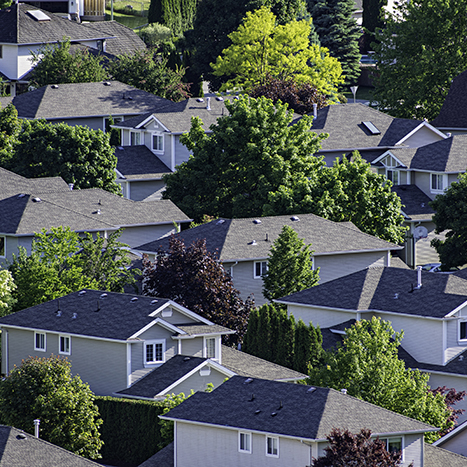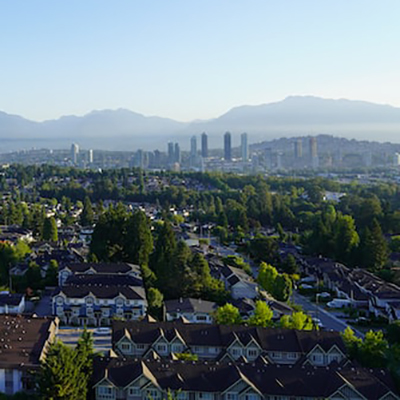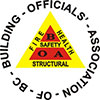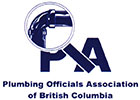
BC Building Code Update for Cleaner, More Energy Efficient Buildings
Effective May 1, 2023, the BC Building Code (the Code) will require 20% better energy efficiency for most new buildings throughout the province. The Zero Carbon Step Code, which has also launched, provides tools to local governments to incentivize or require lower emissions from new buildings.
This is a significant milestone in B.C.’s transition towards energy efficient and zero carbon buildings.
To help interpret the Code changes, the Province has released three technical bulletins which provide further information. Two bulletins provide clarity regarding application of the new energy efficiency compliance pathways and the Zero Carbon Step Code, while a third is an overview of interest to planners and other local government staff regarding how the BC Building Code changes may affect local bylaws or incentives.
To facilitate compliance with the Code, updated compliance tools for Part 9 and Part 3 buildings have also been released for user testing and feedback.
- Download the beta version of the new Part 3 Energy Design Checklist.
- Download the beta version of the new Part 9 Energy Design Checklist.
In the coming days, bccodes.ca will be updated to include the new Code language.
For questions regarding the new Code language or feedback regarding the new Energy Design Checklists, please email building.safety@gov.bc.ca

Zero Carbon Step Code Updates
Introducing the Zero Carbon Step Code PowerPoint Deck
During the last Energy Step Code Council meeting on Mon Feb 13th, 2023, the Province revealed a first communications primer on the new Zero Carbon Step Code (previously referred to as Carbon Pollution Standard).
The Zero Carbon Step Code is a new addition to the BC Building Code that allows Authorities Having Jurisdiction to limit operational carbon from new buildings. While an optional standard at this time, the Province intends to make operational carbon limits mandatory over time, with the ultimate objective for all new buildings to be zero carbon by 2030. This first slide deck serves as an open-source document for industry and local governments to get a better understanding of why the standard exists, what it is, and what implementation could look like. Over the next few months, further resources for both industry and local governments will be developed and highlighted through the Energy Step Code Stakeholder Update newsletter.
View Slides
Zero Carbon Step Code Peer Cohort for Local Governments
- Step Code Office Hours – for local government staff who have questions about the May 1st, province-wide mandate of 20% more energy efficiency, a staff member from CEA will be available to answer questions and direct you to more resources. Pre-register for an appointment on April 6, 17, 20, or 24.
- Step Code Lunch & Learn – to support local government staff and elected officials to do what it takes to update their bylaws and processes to be ready for the May 1st province-wide implementation of Energy Step Code changes and minimum requirements. This takes place Wed April 19, 2023 from 12 – 1pm PDT.

CPD Offering – Mass Timber Construction and the BC Building Code – Pre-recorded Presentation
Presentation Topic: Mass Timber Construction and the BC Building Code
Please Note: This is a pre-recorded presentation
CPD Eligibility: 1.5 points – Category A4
Registration Fee: No Charge
Presentation Link: Mass Timber Construction and the BC Building Code
Presenter:
Bob is a Registered Building Official who has worked for a variety of local governments in BC for the last 20 years. In addition, he worked for several years as a code consultant and Technical Advisor for the Canadian Wood Council, WoodWorks BC, focusing on mass timber products and construction. Prior to becoming a Building Official, Bob worked in the construction industry as a journeyman carpenter.
Bob also serves as a director of the Canadian Lumber Standards Accreditation Board which oversees lumber grading in Canada, his role with the CLSAB is to represent Canadian Codes and construction.
Bob is currently working as an auxiliary Building and Plumbing Official on Vancouver Island and has put together this presentation on mass timber construction to share with his colleagues some of the knowledge that he has gained over the years.

2023 Payment Service Fees Notice
Starting April 1, 2023, BOABC members will begin to pay service fees on any transaction involving credit cards and other online payments.
For more information, please read the 2023 Payment Service Fees notice.

BC Building Code Changes Coming May 1, 2023
These building code changes enable 20% better energy efficiency and provide an opt-in Zero Carbon Step Code (formerly known as the Carbon Pollution Standard), and were signed by the Minister of Housing last week.
Here are some highlights:
- These Code changes take effect May 1, 2023. By that date, most new construction in BC must be 20% more energy efficient than base 2018 BC Building Code.
- The opt-in Zero Carbon Step Code will also be available for local governments to reference starting May 1, 2023.
- Read the amendment to the Building Act General Regulation online.
- Read a PDF convenience copy of the BC Building Code changes (for information only).
- The performance approach for Step 3 in Part 9 construction remains the default option. Local governments wishing to enable a prescriptive energy efficiency approach for Step 3 in Part 9 construction must pass a bylaw to enable that approach. This responds to feedback from rural or remote communities who wish to maintain a prescriptive-based option, while also meeting requests from other local governments wishing to retain the performance-based approach.
- Backup heat from wood stoves and decorative gas fireplaces will be excluded from GHG modelling in Part 9 buildings. This responds to feedback from communities that experience frequent power outages.
The Building and Safety Standards Branch will release more information in the coming weeks to support a smooth rollout of the change. Email building.safety@gov.bc.ca if you have questions.

New Online Training Program for New Energy Advisor Students
Description:
An Energy Advisor (EA) conducts energy audits to help British Columbian builders and homeowners solve their energy efficiency concerns, save money, and possibly have a more comfortable, healthier home. They also help reduce the impact of home energy use on our environment. The Canadian Home Builders’ Association of BC offers training and certification for EAs, so you have the tools you need to deliver high-quality home energy assessments.
This Stage 1 workshop provides training on the use of the HOT2000 software which is used to model new house plans within the EnerGuide for New Houses, ENERGY STAR, and Net Zero certification programs. The course covers the responsibilities of a plan evaluator, who performs HOT2000 energy analysis of house plans, playing a key role in the quality assurance process for labelling EnerGuide, ENERGY STAR and Built Green® homes. Training is also provided on the blower door test equipment and procedures.
Cost: $2500 + tax
Course format:
Students are required to attend four (4) half-day online training sessions.
The next set of dates for Stage 1 training are: Feb 15 / Feb 22 / Mar 1 / Mar 8 8:30 am-12:30 pm for each session
Students will be required to complete weekly assignments including the submission of training files. The course will conclude with an online final exam. A pass mark of 80% is required.
Inquiries regarding the training should be sent directly to education@chbabc.org.
CPD Offering – Energy Step Code Training for Building Officials
Due to high demand, the Association is pleased to announce that we have brought back two more offerings of the Energy Step Code Training for Building Officials. Each of these offerings is the same course, so only register for one. This education is being offered to help enhance the capacity of qualified officials and local authorities to implement the Energy Step Code.
Details and registration information about the first course offering, Fundamentals of Zero Energy/Emissions and Passive House Buildings, are found below.
Course Name: XZEB 1001 Fundamentals of Zero Energy/Emissions and Passive House Buildings (private offering for BOABC)
Delivery Format: Online (interactive and instructor led)
Duration: Weekly three (3) hour sessions for five weeks (15 total hours of instructional time)
Dates: January 17, 24, 31 & February 7, 14, 2023 (you are committing to all five sessions when you register)
or
Dates: April 18, 25 & May 2, 9, 16, 2023 (you are committing to all five sessions when you register)
Time: All sessions are 1:00pm – 4:00pm (PST)
Cost: $199 (plus GST) per student. This special price for members is made possible by generous support from BC Hydro and BCIT.
Registration: Click here (max 50 registrants per offering)
CPD Points: 5 points (automatically uploaded to your member portal when you register)
Course Description:
This course covers the fundamentals of for zero energy/emissions and Passive House buildings, with a focus on wood-frame construction subject to Part 9 of the BC Building Code. Students will acquire knowledge of applicable codes and standards with a focus on the BC Energy Step Code and 2022 changes to the BC Building Code. Course topics will be applied to the role and responsibilities of building officials with case studies and examples of how Energy Step Code has been adopted and incorporated into permitting, plan reviews, site inspections, and monitoring of related construction metrics. Specific topics covered include: the BC Energy Step Code, Net Zero Energy, Zero Carbon and Passive House standards, operational and embodied carbon, building science, and low-TEDI and airtight enclosures, mechanical and electrical systems in Net Zero Energy-ready buildings. The course will focus provides a strong foundation for subsequent zero energy/emissions education.
Please note that you will need to provide a BCIT ID number to BOABC when you register for this course. If you cannot remember your 9-digit BCIT ID number or you need to create a BCIT ID, please visit myBCIT to create or recover your BCIT ID number.

Retirement Announcement: Lori Staples
Please join us in extending our best wishes to Lorena (Lori) Staples on her retirement. After practising primarily local government law for 58 years, in British Columbia since 1980, and before that time in Ontario, Lori is officially retiring as of November 30, 2022.
“It has been my great honour and pleasure to serve the members and executive of BOABC since it became a self-governing professional association in 1997, and to have been awarded the Jim Robison award in 2014 for my efforts. I wish the Association and its members continued growth, success and satisfaction.” –Lorena (Lori) Staples, Q.C.
The Association thanks Lori for her counsel, remarkable dedication and commitment over the years that were integral to our success and continuity. Lori will be missed, but her contributions will be remembered. We wish her all the best in her new adventures.
Happy retirement Lori!

Consultation on 2025 National Model Codes
The Canadian Commission on Building and Fire Codes (Commission) is currently developing the 2025 editions of the national model codes.
As part of this process, the Commission is inviting code users and stakeholders to review proposed changes to the 2020 editions of the following national model codes:
- National Building Code of Canada (NBC) 2020
- National Fire Code of Canada (NFC) 2020
- National Energy Code of Canada for Buildings (NECB) 2020
- National Plumbing Code of Canada (NPC) 2020
This national public review runs until December 23, 2022.
Details about the proposed code changes can be found under the summary of proposed changes section at the bottom of the Commission website. The proposed changes include updates to the documents referenced in the national model codes.
The relevant Commission standing committees will review comments received during the public review period. Based on their evaluation of the comments for each proposed change, the committees will then either withdraw the proposed change, recommend that it be reviewed further for possible re-submission in revised form in a future public review, or recommend that it be approved, with or without modification. If approved, the code changes will be incorporated in the 2025 editions of the national model codes.
Accessibility Standards Canada Public Review
In addition to development of the National Model Codes, standards development organizations and other partners are working to advance accessibility in the BC Building Code.
Accessibility Standards Canada is holding a public review of its draft model standard for the built environment – accessibility. The B.C. government is reviewing this standard and may consider adopting portions in future BC Building Codes. Your feedback will be valuable to confirm the requirements are clear, technically accurate, and remove barriers to accessibility at the design and construction stage.
The public review is open from November 8, 2022, to January 7, 2023. To participate, please visit the Accessibility Standards Canada website.

BOABC 2021-22 Annual Report
Following another successful year, the Building Officials’ Association of B.C. is proud to present its 2021-22 Annual Report.
The annual report:
- Reflects outcomes and targets set out in the Administrative Agreement
- Showcases data from the 2021 Member Survey
- Presents data surrounding the number of qualified, certified, and designated building and plumbing officials
- Highlights collaborations that helped the Association develop and improve training delivery
- Speaks to the growing number of online CPD opportunities for qualified officials.


